Physics
Sign up for our newsletter
We summarize the week's scientific breakthroughs every Thursday.
-
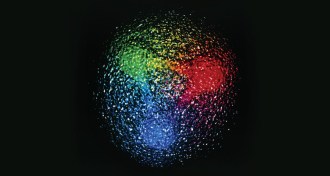 Physics
PhysicsThere’s still a lot we don’t know about the proton
Researchers are puzzling over the proton's radius, spin and whether it decays.
-
 Physics
PhysicsThe drama of Albert Einstein’s life unfolds in the new series Genius
Science takes a back seat in National Geographic’s series Genius, which focuses more on politics and Albert Einstein’s love life.
-
 Particle Physics
Particle PhysicsNew particle probably can’t explain nuclear reactor neutrino mystery
An antineutrino anomaly seems due to problems with scientists’ predictions, not sterile neutrinos.
-
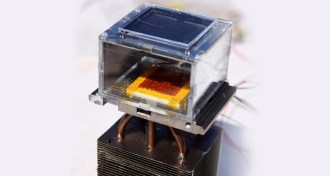 Chemistry
ChemistryNew tech harvests drinking water from (relatively) dry air using only sunlight
A prototype device harvests moisture from dry air and separates it into drinkable water using only sunlight.
-
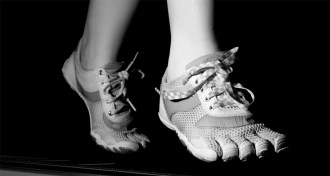 Physics
PhysicsPhysics trips up efforts to keep shoelaces tied
Loose laces are due to inertia and force of feet hitting the floor.
-
 Health & Medicine
Health & MedicineReaders question mental health research
Maintaining mental health, protecting ocean critters and more in reader feedback.
-
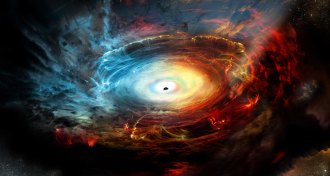 Astronomy
AstronomyEvent Horizon Telescope to try to capture images of elusive black hole edge
Network of radio observatories will attempt a first-ever glimpse at an event horizon.
-
 Materials Science
Materials ScienceBone-inspired steel cracks less under pressure
Steel that’s structured like bone resists cracks better that the traditional form of the heavy-duty building material.
-
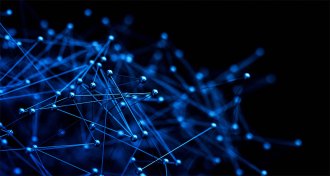 Quantum Physics
Quantum PhysicsMillions of atoms entangled in record-breaking quantum tests
Scientists make advance in the quest to take quantum effects to larger scales.
-
 Particle Physics
Particle PhysicsReaders question supernova physics
Star-destroying neutrinos, heart-hugging robots and more in reader feedback.
-
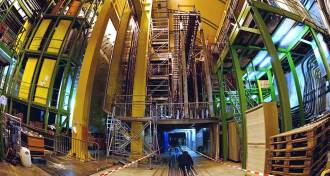 Particle Physics
Particle PhysicsLarge Hadron Collider experiment nabs five new particles
LHCb experiment detects new particles composed of two strange quarks and one charm quark.
-
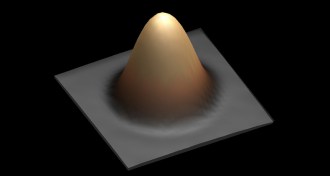 Physics
PhysicsSingle-atom magnets store bits of data
Scientists read and write data by harnessing the magnetic properties of holmium atoms.